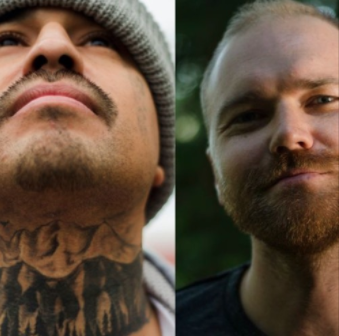Is transformation possible for anyone?
Is transformation possible for you?
Do you want to be transformed?
In Teresa Avila's classic text, The Interior Castle, she describes the evil attacks that await anyone who answers the invitation to move through the outer and then into the inner rooms toward the heart of God. There are many layers of deception so in the first of seven rooms of the castle, Teresa sincerely encourages us to begin with self-knowledge. We perceive God through the lens of our spiritual eyes, so we must cleanse our spiritual eyes to better see God and to receive his love. Our enemy knows this and is intent to keep us hindered from self-knowledge.
This hindrance can be an instilled fear of ourselves. Many of us are taught not to indulge in self-knowledge. Parents and pastors instruct us against this as self-idolatry; the focus of the Christian's life is Jesus not ourselves, they say. Yet Jesus' greater teaching is to love our neighbors the way we love ourselves, and love reveals. Love requires for intimate knowledge and sharing. Love creates hope, trust and awareness.
We must know ourselves. If we know ourselves truly, we do not become self-consumed, navel-gazing egoists. True self-knowledge instead reveals our deepest, most essential design: our hunger for God's love and friendship. If we look clearly and deeply within ourselves, deep calls us unto deep. We dive into our depths and there in the center of our being, we find traces of God drawing us back to himself.
Where can I go from your Spirit?
Where can I flee from your presence?
If I go up to the heavens, you are there;
if I make my bed in the depths, you are there. Psalm 139
Does this seem strange and impossible? Is this transformative, in-breaking of love possible for you? Do you desire this love?
How about a modern day example? Enter Neaners Garcia, a gang leader in the Skagit Valley of Washington state, in solitary confinement for murder. As he lay in his bed in solitary for many months, Neaners confronted the darkness and anger inside of himself, yet he went deep below his violence and found the sacred name of Jesus.
I invite you to join in this conversation with Neaners and his friend Chris Hoke, the co-directors of Underground Ministries. Come taste and see the power of transformation in their shared story.
This conversation with Neaners and Chris is very much a continuation of my previous episode with Christopher Hall, president of Renovare (and one of the core faculty in my doctoral program in spiritual direction at Fuller Seminary). The story of Neeners here in this episode #19 suggests that desert spirituality is accessible through a prison. Chris Hoke brilliantly reflects upon the similarities between the monastic cell and what he calls the "re-purposing" of a prison cell for the sake of transformation.
In that talk with Chris Hall I suggested that America's industrial incarceration system is a result of the failure of the American Church to understand the transformative power of the Gospel. On the surface it seemed Chris Hall disagreed with my discernment. I am loathe to stir up arguments with my professors. However, to be fair, in that episode I did not describe the full context of my discernment. Chris Hall was right to be lovingly optimistic about the willingness of Evangelicals today to be stirred into the social justice movement. Indeed my friends at Calvin College who teach in a prison report how wonderfully bi-partisan compassion for the incarcerated is.
Even still, granted that we can be more optimistic about the church today, we need to see ourselves clearly. I continue to believe the systemic racism and oppression of our incarceration is a result of a limited Gospel since the founding of America. In the same way that we struggle to gain our own self-knowledge, we struggle as an American church to see ourselves collectively. I'm advocating for spiritual direction as social action, that we follow Teresa's wisdom and aid the church to begin with corporate self-knowledge. Spiritual directors can help us see and know ourselves collectively. To change as a society, we must look into the mirror.
When I look in the mirror, I see ethnic and economic disparities manifest in incarcerated men. James Baldwin famously wrote: “The history of America is the history of the Negro in America. And it’s not a pretty picture.” To understand people of color is to understand our incarceration system that today holds 25% of the world's prison population, 40% of whom are black men. I submit that the history of America is the history of who we imprison.
My friends in the EC Brooks Correctional Facility are a way for me to look at this ugly picture in undomesticated ways. Likewise, this conversation with Chris Hoke and Neaners Garcia gives us a powerful look at ourselves. And remember, if we look clearly and boldly, we will see beneath what is fragmented, obscured, and violent and like Neaners, we will discover God's healing love!
Peace of Christ to you!
Josh

